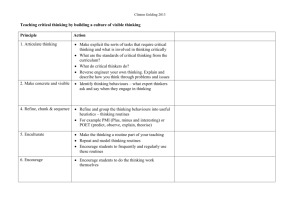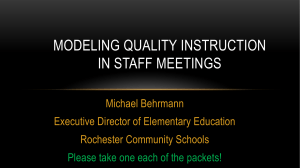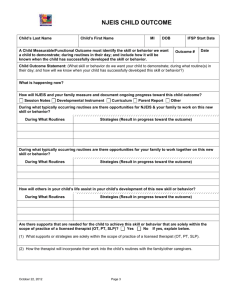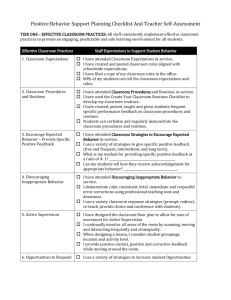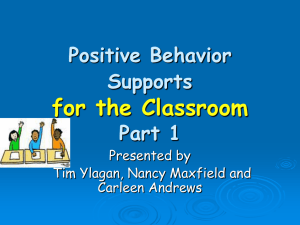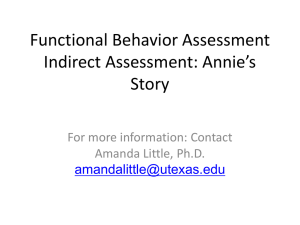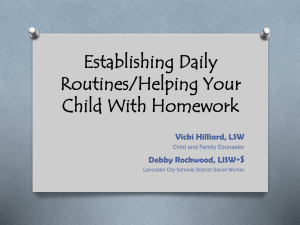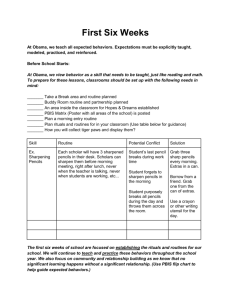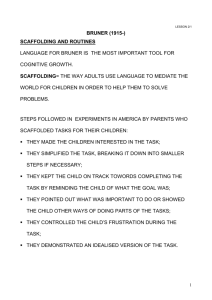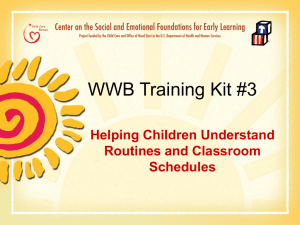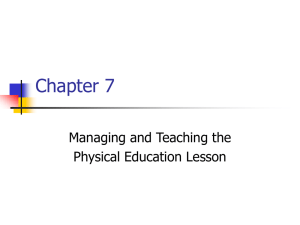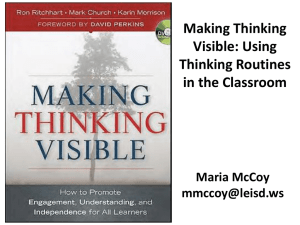Functional Skills in Classroom Routines
advertisement
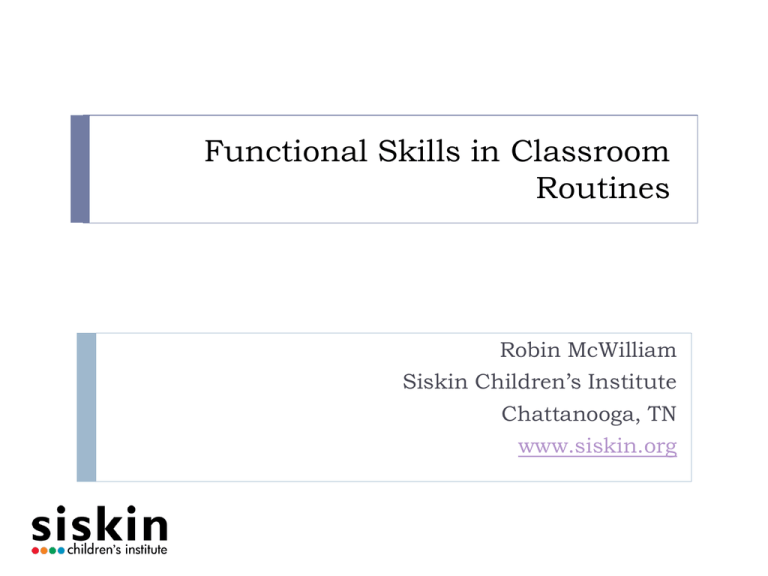
Functional Skills in Classroom Routines Robin McWilliam Siskin Children’s Institute Chattanooga, TN www.siskin.org Outline Purpose EISR Routines Proposed skills Scoring and use Purpose Profile of functioning in context Children 3-5 in early-childhood programs Not a developmental test Purpose 3-5 companion to MEISR Measure of Engagement, Independence, and Social Relationships Purpose EISR Rationale 3 foundations of learning Predate federal child outcomes EISR Crosswalks ICF-CY Federal child outcomes Early learning standards Routines Times of the day, including planned activities What Are Common Classroom Routines? Small Handwashing Snack Outside Circle Centers/Free Music Nap Play group Toothbrushing Story Arrival Departure Bathroom Art Proposed Skills For each routine, what are functional skills children should have to be able to participate, related to Someone write the group’s ideas down, to be turned in. Engagement Independence Social relationships Back of page, all in group write e-mail addresses Code each item as predominantly E, I, or SR Code each item as predominantly Positive social-emotional skills (including social relationships); (S) Acquisition and use of knowledge and skills (including early language/communication [and early literacy]); and (K) Use of appropriate behaviors to meet their needs (A) Scoring and Use Percentage of skills within a routine Progress monitoring Mean percentage of skills, across routines Goodness of fit Help with programming (goals) Demands of the Routine Abilities & Interests of the Child Covered Today Purpose EISR Routines Proposed skills Scoring and use Thanks for helping create the InclInE Inclusion Institute for Engagement!
